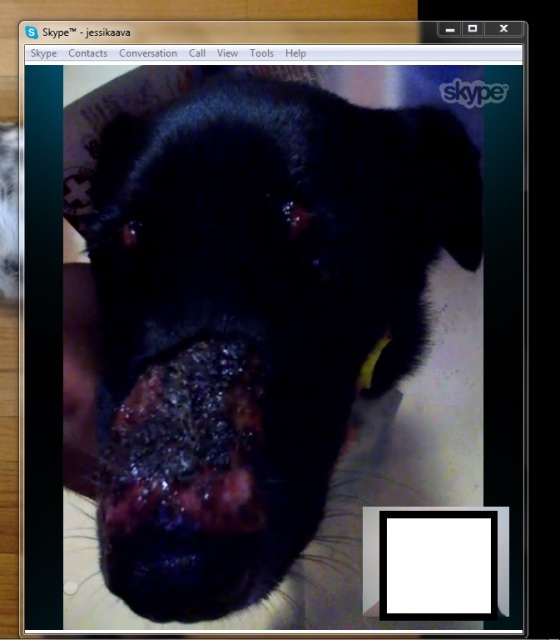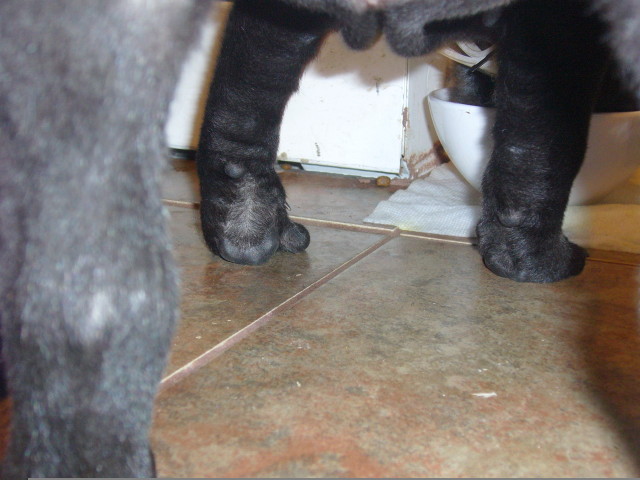Questionwe just adopted a 6 year old spayed labrador,we got here across state,and after getting email today from the previous owner,we found out she hasnt had her heart worm pill or test for past year,she had lived in kansas till nov.
were in cold state of mich,and wonder if we need to have heart worm done.they dont usually check here untill spring and if we do it now,she would still need it done this spring,we are new dog owners,and i havent had a dog for 35 years.would you have it done now or wait untill spring,she has been mostly a inside dog.
what do you recomend we start with,i was hoping not to have to have heart worm done now and in spring,thanks,jim
AnswerI would recommend having her tested and start her on prevention. It takes 6 months from the time a mosquito bites to maturation of adult heartworms. Heartworm prevention works by killing heartworm larva in the middle of the cycle, so I wouldn't wait to get her tested and on prevention.
Dog Heartworm
Heartworms are the most life-threatening canine worms, for they reside in the dog's heart and pulmonary arteries, causing heart failure and eventually death.
Adult worms are 10 to 30 cm in length and about 1 mm in diameter.
Transmission and life cycle
Heartworms are transmitted by mosquitos. When an infected mosquito bites a dog, it passes him the worms' larvae that start to migrate until they reach their final site (heart and pulmonary arteries) in about 3-4 months; here they grow to maturity (macrofilariae) within a further 3 months and start producing larvae (microfilariae) which can survive for about 2 years in the bloodstream.
When a mosquito bites an infected dog, it picks up these larvae and can transmit the infection to other dogs.
Disease
Over time, the presence of the adult worms in heart and pulmonary arteries causes an inflammation and thickening of the walls of the blood vessels which leads to an increase in blood pressure and in the cardiac effort to push the blood in these vessels. As a consequence, the dog may develop heart failure, which can eventually lead him to death. Clinical symptoms usually appear only when the disease has reached a very severe stage (usually 3 to 5 years from infection). First signs consist of sporadic coughing and tiredness; as time passes, cough becomes chronic and is accompanied by difficult respiration, particularly during and after exercise, mild anemia and unthriftiness. In advanced cases, the dog may collapse after even light physical exertion. Most dogs eventually develop congestive heart failure.
Treating Heartworm Infection
Treatment of heartworm infection is a long and risky process. Dying heartworms as well as their larvae may determine shock and embolism. During therapy, dogs have to be strictly controlled for side effects, and their activity restricted for a few weeks. Moreover, in advanced cases, health will not be restored even after effective treatment.
For all these reasons it is now clear why prevention is so important.
Heartworm Prevention
In contrast to therapy, heartworm prevention is safe, easy and effective.Before prophylactic treatment is started, dogs should be tested for heartworm infection; those found to be infected have to be treated against adults and microfilariae, before a prevention program is started. Preventatives are usually administered monthly, starting within 1 month from the beginning of the mosquito season (or the exposure to a possible infection, e.g. during travelling to heartworm countries), until 1 month after the end of exposure.
Some preventatives are also effective against all other common dog worms thus ensuring a complete protection of your pet.

 Giant Blisters/Scab on Nose & Spreading
Question
Dogs Snout and Eye
Hello,
We have take
Giant Blisters/Scab on Nose & Spreading
Question
Dogs Snout and Eye
Hello,
We have take
 red bumps in dogs ear
Question
left ear
My puppy has red bumps in her
red bumps in dogs ear
Question
left ear
My puppy has red bumps in her
 Location problems
Question
Carna
Hey,
This is kayleigh again replying to
Location problems
Question
Carna
Hey,
This is kayleigh again replying to
 downed pasterns
Question
bent pasterns
hi...i have a 7 month old german
downed pasterns
Question
bent pasterns
hi...i have a 7 month old german
 Two Front Legs Hurting on a Shar Pei
QuestionQUESTION: My two month old puppy (shar pei) beg
Two Front Legs Hurting on a Shar Pei
QuestionQUESTION: My two month old puppy (shar pei) beg